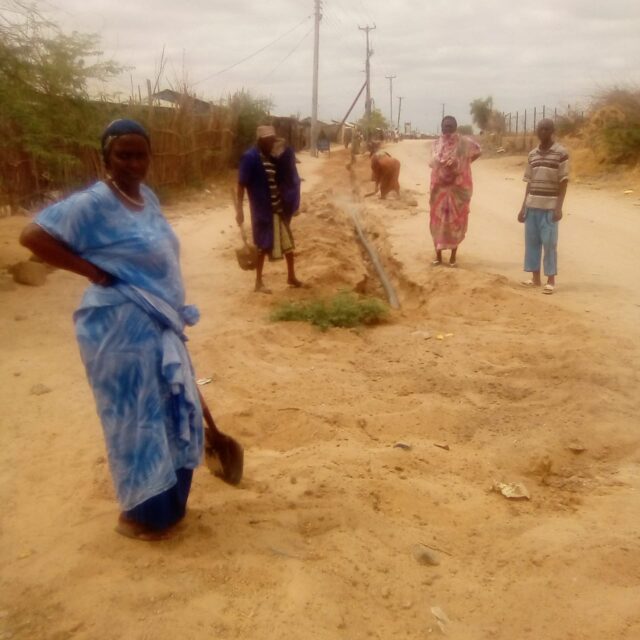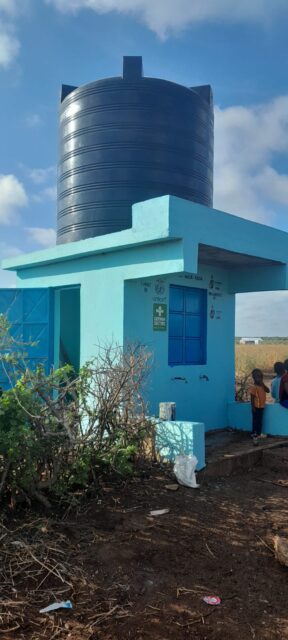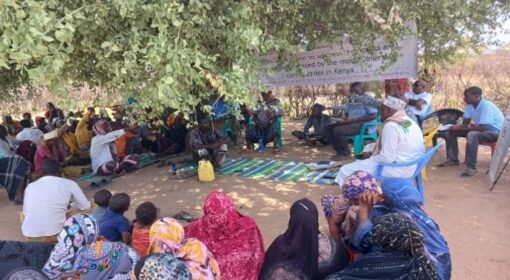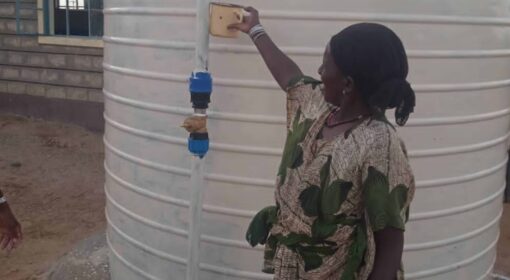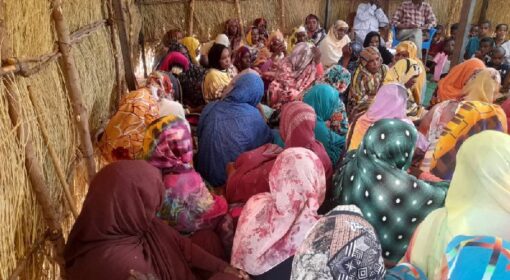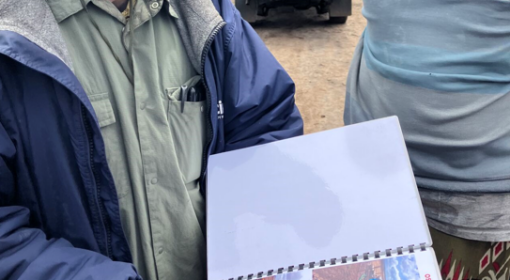By MID-P, hub in the Reversing the Flow program
This blog is part of a dossier on locally-led adaptation, featuring insights and lessons from the Reversing the Flow (RtF) program. RtF empowers communities in Bangladesh, Burkina Faso, Ethiopia, Kenya, and Sudan to build climate resilience through direct funding and a community-driven, landscape approach.
Extreme climatic conditions, the profound impacts of the minimal annual rainfall, erratic and intense rain and persistent high temperatures throughout the year, have had overwhelming effects on the environment and livelihoods of ASAL (Arid and Semi-Arid lands) communities. The recent drought of 2022 followed by the rapid onset of floods in late 2023 ushered in one of the most dire humanitarian crises witnessed in most parts of ASAL Kenya in decades.
The community in Kulamawe has prided itself on its resilience in the face of the changing climate. As one walks in the village, you get to see the relentless spirit of a community that values their livestock. At the borehole you will find them watering their camels, goats and cows as the women and girls fetch their jerrycans of water to be used at home.
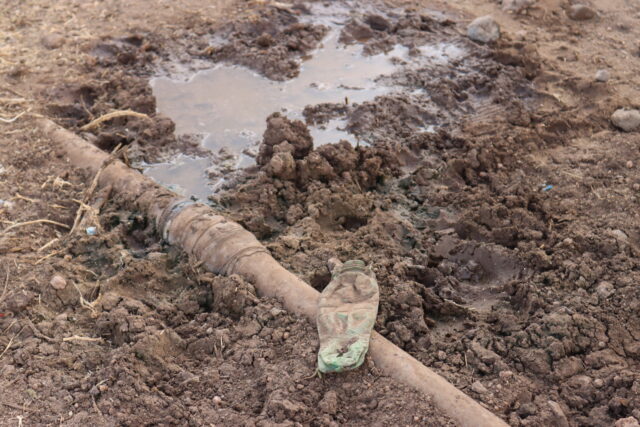

Their relentless spirit was put to the test with recent floods that descended upon the area leaving destruction in its wake. The flood waters had uprooted trees and washed away sections of the piping infrastructure that carry water to the communal watering points. As the water subsided, the extent of the damage became clear. Sections of the pipes were uncovered while others were swept away, compromising the access to clean water for the households and their livestock. Not one to give up, some of the community members embarked on retrieving the pipe parts that had been swept away then making an effort to repair them.
In the midst of the flood destruction, local organization MID-P with funding from the Scottish government through Oxfam in Kenya and AHN, got into action. With determination and focus, and in partnership with the local community began the process of repairing the damaged pipelines, extended another one and repaired a water kiosk where women can comfortably fetch water closer to their homes.

